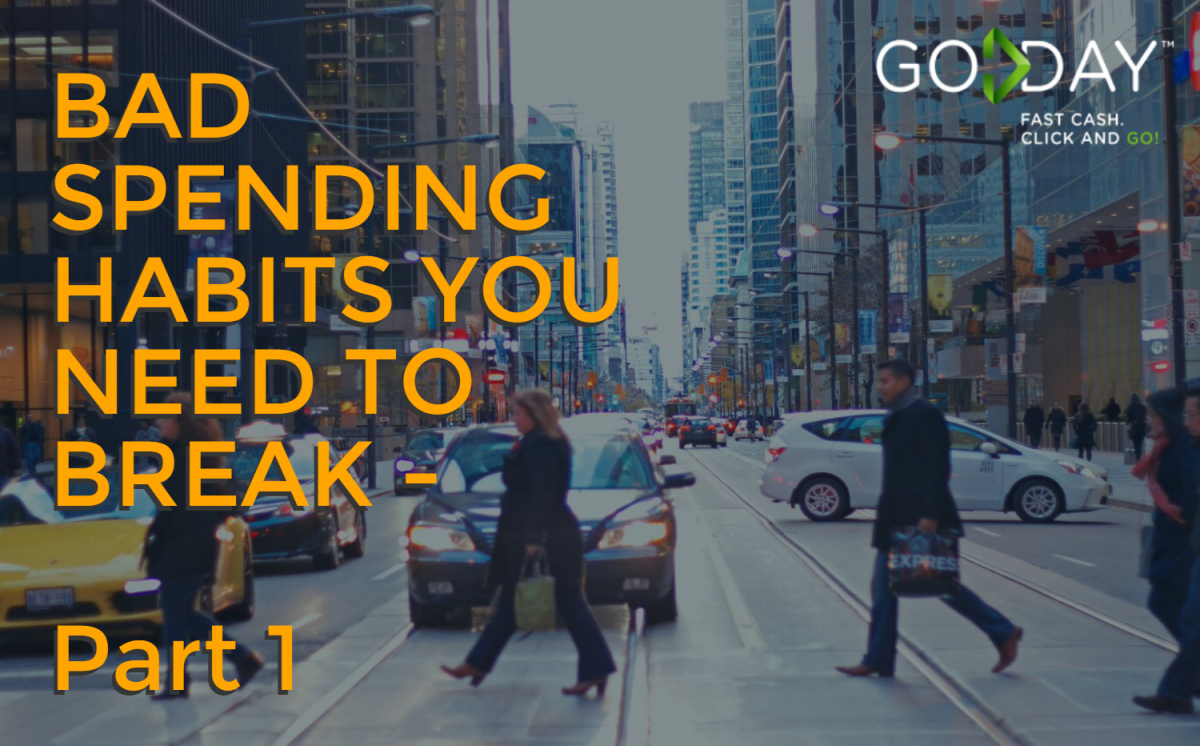Late last year, we published an infographic to help you identify “spending problems” that may have creeped (or full-on barged) their way into your financial life. They ranged from the small and insidious “urge to buy” to the completely debilitating fear of needing to “keep up with the Jones'”.
Hopefully, if you identified your behaviours with any of those listed, you’re on your way to kicking your particular money-demon right in the bud.
But, if you haven’t, the better place to start may be to identify the specific spending habits that you have that could be leading you down a darker financial path. Everyone has different needs, demands and goals when it comes to money, so there is no way we could possibly cover every bad habit that might exist. However, we are aware that there are common threads for the worst spenders among us, so we will highlight those and run with them.
If you have any to add, please leave a comment below and we’ll make sure to add them in future publications! You never know; your money wisdom might just help another reader in the future.
1. ATM Fees
When you withdraw cash, how many times do you actually use your own bank’s network of ATM’s? If it’s once or twice a month, that’s not so bad (unless the fee is $5 per time, in which case, never ever do that unless it’s an absolute emergency).
If it’s anything more than that, you’re basically flushing your own money down the toilet. Considering the fact that most Canadian bank accounts already charge you just to have an account open with them, you’re only adding insult to injury. If you take out cash once a week at an average of $2 per transaction, that’s $104 completely wasted!
Do your very best to find your own bank machine or teller if you have to withdraw cash. You work hard for your money, so try not to waste it on this truly pointless transaction.
2. Late Fees
Save yourself the time and hassle of paying your bills on time by setting them up automatically. Paying your bills late adds up fast, with all those extra fees and interest after all. Month-after-month of a few dollars here and there for each late bill will add up even faster than the ATM fees you’re paying. Set up a pre-authorized debit for your biggest accounts and budget for them to come out either on their specified due-date or on your actual pay day.
3. Brand-Name Grocery Products
Do you really need to buy specific brand name of product when the generic or house brand does the job just as well? What is the added bonus of having that name for something you’ll use up in a matter of days or a month? Unless there is defined value in using brand name over generic, save yourself the money and get the in house brand. Or, better yet, learn how to make your own cleaning products out of household staples, and save even more than the standard “20%” difference between brand and generic.
4. Buying Lotto Tickets
Look – we get it. You want to get rich quick and maybe the lottery is a fun way to relieve stress. But, if you’re spending even $5 a week on a ticket, that adds up fast. Unless you’re making a full return each time and getting your investment back, chances are you’re wasting money. Yes, it’s a discretionary thing and your right to do. But depending on your current financial state, maybe it’s better to save that money instead. You’re more likely to get into a car accident than to win the lottery. Save your hard earned cash, or limit your lotto tickets to one purchase a month.
5. You Don’t Plan Your Meals
You’re busy. Sometimes it’s easier to just run out and grab a burger, right? Might be easier, but it’s not cheaper, not by a long shot. If you are buying even just one meal out every day, you’re spending a significant amount more than you need to be on food. If your grocery budget is a modest $60 a week (for one person) and then you go out and spend around $10 per day on coffee/lunch (again, very modest amount), you just spent your entire grocery budget for a week on dining out, when there’s perfectly good food at home that just needed a bit of prep work. Try to limit your dining out to once a week, and, if you can stomach it, down to once a month for a special occasion. You’ll feel so much better when you see that money in your bank account (or going towards paying off a debt) instead of, technically, down the toilet later.
Check back next week for more bad spending habits that you can kick!



